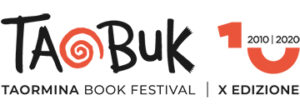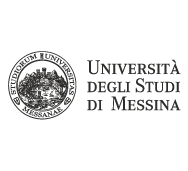The MESSINA/TAORMINA CONFERENCE “THE FUTURE OF EUROPE IN A POST PANDEMIC WORLD” has taken place from 2 to 4 October, 2020, in the very days while the continent was confronting the second wave of the Pandemic.
The Conference was co-organized and hosted by the Taobuk Festival and Vision think-tank, thanks to the support of the University of Messina, which offered the stage for this first day of the Conference , held in collaboration with Corriere della Sera and moderated by Nicola Saldutti (Chief Economics, Corriere della Sera).
The numerous contributions in the debates recalled the theme of the 2020 edition of the Taobuk Festival, Enthusiasm, highlighting the positive aspects inherent in the process of European integration.
While our Scientific Commitee was drafting the paper of the MESSINA/TAORMINA CONFERENCE ON 10 IDEAS FOR A 21ST CENTURY EUROPE, the continent was confronting its greatest crisis since 1945, a crisis that not only promises to accelerate the pre-existing technology-driven mutations that have been overthrowing mainstream practices and assumptions but could also produce disruptive transformations in its own right.
As this still new crisis has been unfolding, it has become clear that the covid-19 pandemic has the potential to radically remake the fundamentals both of the European Union and of the whole Western European way of life. It could do so in a dramatically constructive way. Or, equally, in a dramatically destructive way.
The European Commission’s decision to propose an ambitious, unprecedented plan for recovery (the 750 billion euro NEXT GENERATION EU) which will be financed by the European Commission own resources is certainly the sign that COVID19 has triggered a sense of urgency which we never experienced before. However, the EU needs more: it needs objectives and decision making mechanisms which can bring a great 20th century project in the new century.
Moreover, the pandemic has exposed fundamental weaknesses in what Europeans thought was their main strength. Despite believing that they live in the portion of the globe that enjoys the highest quality of life, the most developed welfare and some of the best health-care systems, in fact many European countries – notably Italy, Spain, France, Belgium, Sweden and the Netherlands – have been the worst hit in terms of casualties and cases, and now have to face a huge welfare burden with broken public finances.
History teaches that after the global wars of the twentieth century, new “world orders” have been crafted: the one conceived in 1919 after the first conflict around the “League of Nations”, was less successful than the one drafted in 1948 and culminated in the foundation of the UN, the IMF, the NATO and, ultimately, in Europe, of the European Economic Community (EEC) as the embryo of the current European Union.
We believe that time has come for a new start.
Sixty-five years ago it was a conference in MESSINA to decide the creation of the institutions (the EEC and the EURATOM) which paved the way to the ROME treaty.
In 2020, the think tank Vision together with TAOBUK has called a 3 days meeting – on the 2nd, 3rd and 4th October – in MESSINA/TAORMINA where thirty intellectuals, policy makers, journalists, historians and visionaries has been gathered to generate and discuss some ideas which may trigger a debate on the future of EUROPE with the objective to provide a contribution to “crafting the future”.
The conference was based on a Concept Paper redacted by Vision and structured in accordance to the Agenda.
Part of the Conference has been dedicated to solving events held in Taormina and Messina where conference speakers has continued the debate on the future of EUROPE with selected samples of public opinions and citizens (university students; entrepreneurs; majors from European cities).
Below the new Messina manifesto and the conclusions of the three tematic Working Groups.
Here the videos of the Plenary Sessions:
- What went wrong with the greatest post war dream?
- Ten ideas to trigger a debate
- “Europe as a value based project” and “The post covid recovery as an opportunity to end the ideological battle between ants and grasshoppers”
- Europe in a new world order between Trump, Putin and Xi Jinping 2020
- Erasmus, civil service and european media as a lever to european citizenship
- Presentation of the Book “Lezioni Cinesi“
Among the participants:
Antonella Ferrara (President and artistic director Taobuk Festival), Stefania Giannini (Assistant Director for Education, UNESCO and former Minister for Universities, Research and Education in Italy), Bill Emmott (Author of the FATE of the WEST and former editor of The Economist), Sebastien Maillard (Directeur Notre Europe, Institut Jacques Delors), Romano Prodi (Former Prime Minister of Italy and Former President of the European Commission), Paolo Gentiloni (European Commission for Economy and Former Prime Minister of Italy), Giuliano Amato (Judge of Italy’s Constitutional Court, Former Prime Minister and Former Vice President of the Convention on the Future of Europe), Luciano Fontana (Editor of Corriere della Sera), Maria Costanza Cau (Researcher, VISION), Nicola Saldutti (Editor-in-chief Economy, Corriere della Sera), Mario Nava (European Commission DG REFORM – Director General), Cleo Li Calzi (Professor Leadership Management, LUMSA University), Elvira Terranova (journalist, AdnKronos), Francesco Lapenta (Founding Director of the John Cabot University Institute of Future and Innovation Studies and Mozilla-Ford Research Fellow), Carlos Moedas (former European Commissioner for Research, Science and Innovation and Member of the Advisory Board of the “Futures of Education” Initiative), Paola Bonomo (Former Principal McKinsey, Vice Chair Italian Angels for Growth), Koert Debeuf (Director of the Tahrir Institute for Middle East Policy Europe), Fabio Masini (Jean Monnet Chair for European Economic Governance, Roma Tre, Secretary of the European Federalist Movement), Sandro Gozi (Former Italy’s Minister for European Affairs and MEP elected in France), Kalypso Nicolaidis (Professor of International Relations and governing body fellow at the St Antony’s College – European Studies Centre, OXFORD University), Xuē Xīnrán (Writer of The Good Women of China and Journalist), Matthew Caruana Galicia (Investigative Journalist, MALTA), Franziska Brantner (Member of the Bundestag and leader of Alliance 90/ The Greens), Stefania Baroncelli (Professor Public and European Union Law at Free University of Bozen-Bolzano), John Hooper (Italy and Vatican correspondent of The Economist), Michele Geraci (New York University and head of Italy – China workforce), Elizabeth Strout (Pulitzer Prize 2009), Alexandra Borchardt (Head of Digital Journalism Fellowship Hamburg Media School, Senior Research Associate, Reuters Institute for the Study of Journalism, University of Oxford) , Lorenzo Fioramonti (MP and ITALY’s Former Minister for Schools, Universities and Research).
In Messina, 65 years ago, the founding countries decided to “make” Europe (and the European Economic Community). After 65 years, perhaps the time has come to renew the dream. Vision’s paper proposes an approach, priorities and ten specific ideas that can fuel the debate – in Messina / Taormina and in the coming months – and promotes a new manifesto.
Here the new “Messina Manifesto”.
In the 18th Century, the construction of modern nation States found its powerful economic motivation and then legitimacy in the need to develop transportation infrastructures. Roads, railways, squares, and ports would allow factories to exchange goods so that they could specialize and increase productivity using the marvels of mechanization. Digital platforms are the equivalent of those infrastructures. They are the “pathways” through which services, goods, ideas, and relations are channelled in the 21st Century.
So far, though, Europe let its own future slip through its hands. A handful of private companies – some only recently made public in the US (and, as such, regulated by the SEC), others Chinese (and, as such, rigidly controlled by the Chinese Communist Party) – own the contemporary “infrastructure” we all use.
It is, thus, a question of state-of-the-art regulations and policies, but also of investments: both in new, public European platforms and in start-ups that will create services for those platforms. A top priority for Europe be fostering venture capital through close-end funds to be created as partnerships between States and the financial operators with the skills to provide support and foresight to new companies.
The conclusions of the Working Group were redacted by Francesco Lapenta, Carlos Moedas, Paola Bonomo, Alfio Puglisi, Elvira Terranova.
Here the conclusions of the Working Group
The immigration crisis had exposed much before the COVID19 emergency the enormous (political) costs that half integration, half-hearted unions can have: technically speaking, an area of free circulation of people without a common immigration rule, common customs (and a strict coordination of the responses to confront emergencies like an epidemic coming from a third country and crossing borders) is unstable and exposed to fragmentation.
The same applies, in fact, to the other pillars of the European project, the common market, as well as to the Monetary Union. The bet of an entire generation of European leader (starting from JACQUES DELORS) was that asymmetric, incomplete integrations were supposed to create the political pressure towards their completion (or, at least, this was). That bet seems to not have worked.
One possibility is that European institutions reverse the current approach: fewer partnerships but with complete allocation of power and responsibility. These fuller integrations need also to be freely and wholly accepted by Member States, so that they transparently delegate their sovereignty on matters that will have become European authority. One further possibility would be to always pragmatically ask citizens to approve the union so that public opinions are not, then, played against the agreement at a later stage. This would help avoid ambiguous “shared jurisdictions.”
Such a design would be different from the federalist vision because it would be organized around clusters with different memberships (as for today’s “variable geometry”) and built on a flexibility that Nation States of the eighteenth century excluded.
The conclusions of the Working Group were redacted by Fabio Masini and Koert Deboeuf.
Here the conclusions of the Working Group.
“Information is power”. If it is true what Sir Francis Bacon states in the novel NEW ATLANTIS, the story of the INTERNET revolution is a powerful explanation of liberal democracy. The deluge of data has massively reallocated information, and, as a consequence, the forms through which power is achieved, limited, exercised should be reorganized.
At European level, the “democratic” question has been for decades the so called “democratic deficit”. The European Parliament – the only supranational institution elected by citizens – was seen not powerful, and even more not “popular” enough to close the gap between European institutions and its citizens.
Today, we can probably re-frame the old question which we discussed hopelessly in so many think tank fora in a novel way. Not only Europe is suffering legitimacy; it is liberal democracy which may be experiencing technological obsolescence.
Europe may then become the laboratory for experimenting solutions to the latter problem so that we also find new ways to create a European political arena.
The conclusions of the Working Group were redacted by Sandro Gozi e Maria Costanza Cau.
Here the conclusions of the Working Group.
Here the collection of the “physical” articles citing the Taobuk Festival and Vision
- Corriere della Sera, 02/09/2020
- La Sicilia, 19/09/2020
- La Repubblica, 19/09/2020
- Gazzetta del Sud, 27/09/2020
- Gazzetta del Sud, 01/10/2020
- Gazzetta del Sud, 03/10/2020
- Gazzetta del Sud, 04/10/2020
- Milano Finanza, 06/10/2020
Here the collection of the online articles citing the Taobuk Festival and Vision
- Letteratitudine News, 14/07/202
- Messina Today, 15/07/2020
- Normanno, 16/07/2020
- ANSA, 19/07/2020
- SoloLibri, 20/07/2020
- Messina Ora, 19/09/2020
- Touring Club Italiano, 20/09/2020
- Iene Sicule, 21/09/2020
- Il Sud Online, 22/09/2020
- Gazzetta del Sud online, 27/09/2020
- Messina Ora, 29/09/2020
- Tempo Stretto, 30/09/2020
- FS News, 01/10/2020
- Il Fatto Quotidiano, 02/10/2020
- Messina7, 03/10/2020
- Stampa Libera, 05/10/2020
- Paese Italia Press, 05/10/2020



